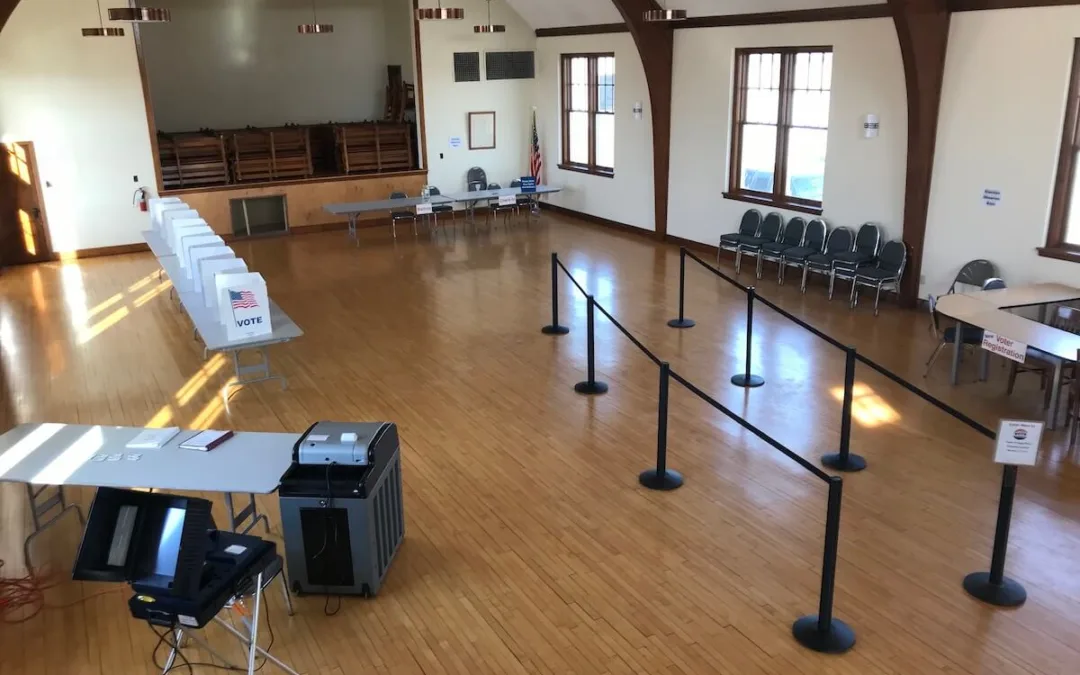
#image_title
Business owners and workers say high health insurance costs hinder success, expanding Medicaid offers a lifeline.
Growing up in rural Rhinelander, Lisa Ort-Sondergard knew what it was like for her and her family to lack affordable health care, and she was determined that when she grew up, she would have a job that offered that benefit.
Ort-Sondergard did just that. Her first job after graduating from college, working as a social worker in Pierce County in western Wisconsin, provided affordable health insurance. The work was extremely stressful, she said, but when she told that to her dad, he told her she should keep it because it offered that benefit.
“He would always say ‘You better just keep that job. It’s a really good job. You even have health insurance,” she recalled, noting he had worked in the logging industry and couldn’t afford health insurance.
Decades later, affordable health care remains out of reach for many Wisconsin residents. According to state estimates, at least 323,000 people in the state lack any health insurance, a number experts predict has likely grown during the coronavirus pandemic.
One Year Ago: The Legislative Committee Where Medicaid Reform Efforts Go to Die
Hundreds of thousands of others in the state pay insurance premiums and other costs that stretch their budgets and make it difficult to pay for other living expenses. In too many cases, experts say, people are having to choose between paying medical costs and putting food on their table or making monthly rent payments.
The lack of affordable health care has been an issue in Wisconsin for years, Lt. Gov. Madela Barnes said Wednesday during a virtual event sponsored by Citizen Action of Wisconsin centered on the need to expand healthcare coverage to people who can’t currently afford or access it. That need has only grown during the past year, when the coronavirus pandemic has caused hundreds of thousands to lose their jobs, and many their health insurance as well.
“This last year has made it abundantly clear how critical health care is across our state,” Barnes said.
Wisconsin could receive an additional $1.6 billion as part of the 2021-23 state budget if the Republican-led Legislature would have accepted federal Medicaid funding starting in 2014, according to a report released last month by the nonpartisan Legislative Fiscal Bureau.
The American Rescue Plan Congress approved last month would provide the state with more than $1 billion in new savings by expanding Medicaid coverage. That total would be added to an estimated $635 million the state would already save because of higher reimbursement by expanding coverage of BadgerCare–state-run health insurance for people who can’t afford other healthcare options and whose income qualifies them for the program–to an additional 90,000 people.
That expansion would come by increasing eligibility for people receiving health insurance through Medicaid from 100% of the federal poverty level to 138%. Gov. Tony Evers has proposed that the state accept federal Medicaid dollars available under the Affordable Care Act to increase coverage as part of his proposed $91 billion state budget.
But those savings in the form of higher revenues will only happen if the Republican-led Legislature agrees to accept federal Medicaid dollars, and Republican leadership has said it doesn’t intend to do so. They argue that action would expand the state’s welfare program with no guarantee the federal government will reimburse the state.
The Republican-controlled Legislature refused to include a Medicaid expansion in the 2019-21 state budget, when it would have increased reimbursement to the state by an estimated $320 million.
Chrysa Ostenso said many people in the Rusk County community of Ladysmith where she and her husband operate an optometry clinic are among those who need more affordable health care. Some avoid going to the doctor, putting off oftentimes serious medical care they need, because they simply can’t afford it.
People tell her they are waiting to see physicians until they qualify for Medicare, Ostenso said. “But we all know people who have lost that gamble and not made it to their 65th birthday,” she said.
Ostenso said she can relate. She and her husband pay $22,000 yearly for their health insurance plan that includes a high-cost deductible. Such high costs make it difficult for many small businesses to offer health insurance to their employees, she said, and are a hurdle to more people looking to start their own companies.
“Small clinics like ours are becoming a thing of the past,” she said, noting that at current prices, many small business owners like her can’t afford to provide health insurance to employees.
When Ort-Sondergard’s husband started a cement cutting business in Edgar 23 years ago, he was adamant that his company offer health insurance and other union benefits to its workers after experiencing the positive difference it made in his family to have them. When he sold the business in January, he made sure it was to an owner who would continue to provide workers health care coverage.
Ort-Sondergard said she hopes others in Wisconsin can better afford health insurance as well.
“We’ve needed (health insurance) for our people for a long time,” she said, “and I’m hopeful we can get them passed.”

Billionaires get richer while Wisconsinites lose access to health care with ‘Beautiful Bill’
The US Senate will examine the Trump budget bill this week. It includes the largest cut to Medicaid in the program's history. It also blocks...

More ways to get birth control in Wisconsin? Sign us up.
The State Assembly has approved a plan to allow pharmacists to prescribe birth control pills and patches. There could soon be another way for women...

Election 101: If you’ve tuned out until now, here’s what to know for April 1
Wisconsin goes to the polls to decide control of the state Supreme Court and determine who’s in charge of schools—plus a constitutional referendum,...

Opinion: Pentagon contractors don’t save lives or money – Medicaid does. Don’t cut it.
Cutting life-saving services to further enrich billionaires and Pentagon contractors is the worst possible option. This op-ed was first published on...




